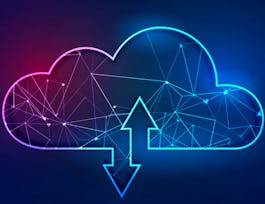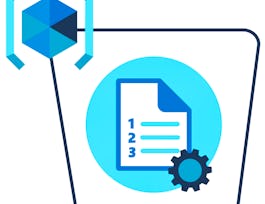In this course, you’ll navigate the complexities of network configuration in the Azure landscape. You’ll learn to fine-tune load balancers for optimal resource distribution and experience implementing and managing diverse Azure Storage accounts. You'll explore how to secure Azure Storage configurations, discover the art of configuring virtual machines to align with specific workload requirements and acquire troubleshooting skills to effectively address virtual network issues. Ultimately, you will learn how to implement best practices for creating and managing virtual networks, ensuring efficiency and reliability in your Azure environment.



Azure Network Configuration
This course is part of Microsoft Cloud Support Associate Professional Certificate

Instructor: Microsoft
Sponsored by ITC-Infotech
Recommended experience
What you'll learn
Gain insight into configuring load balancers in Azure to achieve optimal resource distribution.
Learn to implement and manage various types of Azure Storage accounts effectively.
Acquire skills in configuring virtual machines to align with specific workload requirements and troubleshooting virtual network issues efficiently.
Details to know

Add to your LinkedIn profile
24 assignments
October 2024
See how employees at top companies are mastering in-demand skills

Build your Cloud Computing expertise
- Learn new concepts from industry experts
- Gain a foundational understanding of a subject or tool
- Develop job-relevant skills with hands-on projects
- Earn a shareable career certificate from Microsoft


Earn a career certificate
Add this credential to your LinkedIn profile, resume, or CV
Share it on social media and in your performance review

There are 4 modules in this course
In this module, you will learn how to configure load balancers in Azure to distribute resources efficiently. You'll cover the features and types of load balancers available, discussing the differences between internal and external options and diving into advanced settings. You'll also discover various load-balancing algorithms and strategies to optimize performance.
What's included
8 videos9 readings7 assignments1 discussion prompt
In this module, you will explore advanced Azure networking configurations. You’ll focus on key components such as Azure Blob Storage, delving into its configurations, optimization strategies, and integration possibilities with other Azure services. Through hands-on experience and theoretical insights, you will gain proficiency in configuring and securing Azure Blob Storage.
What's included
9 videos8 readings7 assignments
This module delves into advanced aspects of network configuration and security within the Azure environment. Learners will explore the intricacies of Azure Files, Azure File Sync, and Virtual Machines, gaining a comprehensive understanding of how to optimize configurations to meet specific workload requirements. The module emphasizes practical knowledge, allowing learners to implement secure and efficient solutions.
What's included
9 videos7 readings7 assignments
In this module, you'll apply what you've learned so far to design and implement a scalable and resilient infrastructure using Azure services. The project will emphasize optimizing Azure networking and storage configurations to meet specific business requirements. You will have the opportunity to showcase your skills in load balancing, storage management, and network security, ensuring that the deployed solution aligns with best practices and addresses potential challenges.
What's included
2 videos2 readings3 assignments1 discussion prompt1 plugin
Why people choose Coursera for their career




Recommended if you're interested in Information Technology

Open new doors with Coursera Plus
Unlimited access to 10,000+ world-class courses, hands-on projects, and job-ready certificate programs - all included in your subscription
Advance your career with an online degree
Earn a degree from world-class universities - 100% online
Join over 3,400 global companies that choose Coursera for Business
Upskill your employees to excel in the digital economy






